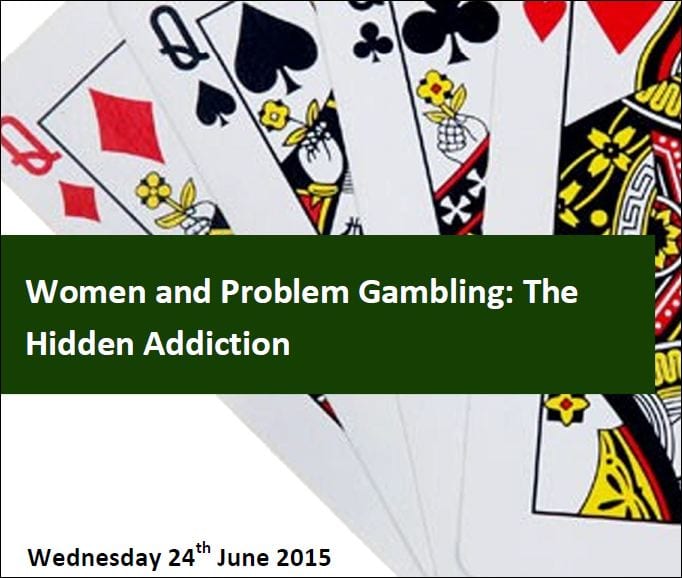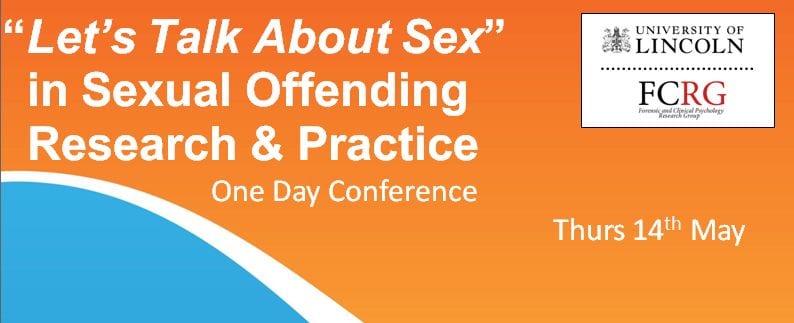by rbartels | May 11, 2015 | Forensic
This year’s second academic term has seen a number of key figures within the forensic field give some fascinating guest talks at the University of Lincoln (as part of the School of Psychology’s Research Seminar Series). Each speaker was invited by a member of the FCRG.
First, on 4th March, Dr. Miranda Horvath (Middlesex University), invited by Dr. Lynsey Gozna, gave an interesting talk entitled “Blurred lines: Exploring the impacts of lads mags and pornography on attitudes and behaviour”. In this talk, Dr. Horvath discussed findings from some of her most recent studies. In one interesting study, participants were presented with descriptions of women taken from: 1) lads’ mags; and 2) comments made by convicted rapists. However, participants were blind to the source of the description. The findings showed that participants could not distinguish the source of the quotes. Moreover, male participants identified more with the descriptions made by rapists than lad mags, possibly explained by the fact that lads mag quotes were rated as being more derogatory. Dr. Horvath suggested that these results support the hypothesis that lads mags reinforce and normalise hostile forms of sexism. In the second half of the presentation, Dr. Horvath outlined some of the core findings from an ongoing project looking into the effects that pornography can have on children and young people’s values, attitudes, beliefs, and behaviour.
A week later, on 11th March, Prof. Theresa Gannon (University of Kent), invited by Dr. Ross Bartels, gave a talk entitled “Adult Deliberate Firesetting: Developments in Theory, Research, and Practice”. In this presentation, Prof. Gannon gave an overview of the theoretical and empirical findings that have emanated from a major project on adult firesetters; a relatively neglected forensic population. Prof. Gannon described the recent Multi-Trajectory Theory of Adult Firesetting (M-TTAF) along with research findings on the psychological characteristics and mental health problems of fire-setters. Some of the key findings were that firesetters have higher levels of anger-related cognitions, interest in serious fires, identification with fire, and lower levels of fire safety awareness than non-firesetters. Also, Prof. Gannon and her team found Borderline Personality traits (e.g., poor impulse control, interpersonal issues) to be a strong discriminator between firesetters and controls. Finally, Prof. Gannon presented new and promising findings on the efficacy of the “The Firesetting Intervention Programme for Prisoners”.
Last but not least, on 22nd April, Dr. Tamara Turner-Moore (Leeds Beckett University) and Dr. Mitch Waterman (University of Leeds), invited by Prof. Todd Hogue, presented a talk entitled “They fear that they’re gonna be viewed as a massive deviant fantasy and penis”: Research on sexual offenders’ sexual thoughts and practitioners’ reflections on the implications for treatment. In this presentation, Dr. Turner-Moore and Dr. Waterman provided an overview of the ‘Sexual Thoughts Project’ (STP); an extensive international survey examining the sexual thoughts and fantasies of community men (n = 6000+) and men convicted of sexual offences (n = 93). The core findings from the STP were presented, particularly those comparing the content of sexual thoughts in non-offenders and sexual offenders. Also, the two researchers gave an overview of the work produced by a ‘think tank’ (comprised of the STP researchers, the Chair of the Practice Committee of NOTA, key UK policy-makers, and treatment providers from prison, probation, mental health, and community services) developed to explore the practical implications of the initial STP findings. The initial work of the think tank was thought-provoking and showcased ways in which this important research can be implemented in practice.
Each talk provided a fascinating insight into some of the core topics and issues within Forensic Psychology at the moment, and we are extremely grateful to each of the speakers for taking the time to visit and share their work with our department.
The FCRG team are now planning the guest speakers for next semester (Autumn 2015), with the aim to make them as interesting and varied as this semester (and year) has been.
by rbartels | May 7, 2015 | Forensic
Last month (April 21-23), three members of the FCRG – Dr. Adrian Parke, Andrew Harris (research assistant), and Dr. Amanda Roberts all presented some their recent research findings at a conference in Toronto, Canada. The conference (Discovery 2015) is run annually by The Responsible Gambling Council (RGC). The RGC is an independent non-profit organisation dedicated to problem gambling prevention. Given the aims of the RGC, the Discovery conference is a key event for the FCRG gambling researchers to disseminate the results of their research.
Dr. Adrian Parke presented a poster entitled “The Role of Stake Size in Loss of Control in Within-Session Gambling“. Using a repeated-measures design, this study found that participants’ decision-making became increasingly worse (impaired) when gambling at higher stakes (£20 per spin on a virtual roulette simulation) compared to lower stakes (£2 per spin). This impaired decision-making occurred regardless of whether participants were winning or losing. These results provide support for a stake-related risk factor for problem gambling, other than rate of loss. Dr. Parke and his colleagues suggest that future research should examine the effects of stake size in conjunction with other characteristics of EGM (Electronic Gaming Machine) gambling.
Andrew Harris presented a poster entitled ” Are Executive Functions Affected by Slot Machine Speed of Play? The Impact of Reel Speed on Motor Response Inhibition”. This study found empirical evidence that faster game-play on an electronic slot machine simulator led to a greater loss of control. This loss of control manifested as an impairment in motor response inhibition, measured via an integrated Go/No-Go paradigm. Implications of gambling harm minimisation strategies are discussed.
Dr. Amanda Roberts presented a poster entitled ” Gambling Problems, Traumatic Life Events and the Perpetration of Violence”. This study aimed to examine the relationship between problem-gambling and violence – including intimate partner violence (IPV) and traumatic life events – in a nationally representative sample of men in the UK. The results revealed a strong relationship between gambling problems and family violence (as well as other forms), especially in those with comorbid alcohol dependence. Dr. Roberts and her colleagues argue that negative effects associated with problem-gambling (worsened by alcohol abuse in some cases) can lead to stress and antagonism that is directed towards others, particularly those in immediate surroundings (e.g, family members). These findings suggest a need for problem-gambling treatment services to tailor treatment for clients who present with such issues.
Also, on the 19th April, before the conference began, Dr. Parke and Dr. Roberts attended (by invitation) the “First North American Regional Meeting of the International Think Tank on Gambling Research, Policy and Practice” in Toronto (hosted by the Gambling and Addictions Research Centre, AUT University and the Ontario Problem Gambling Research Centre). The ‘think tank’ focused on discussing the ‘Conceptual Framework of Harmful Gambling’ and how longitudinal research can inform the Framework.
On the 24th June, the FCRG will be hosting a conference on the issue of ‘Women and Problem-Gambling”. Click this link here for more details and a link to the registration page.
by rbartels | Apr 17, 2015 | Forensic
Sexual offending is a major problem within society due to the serious consequences it causes the victims, families, and community. As a result, psychologists are hard at work trying to understand sexual offenders more deeply so that we can devise better risk assessment methods, and provide more effective prevention and intervention strategies. However, the research is not always conveyed effectively to the public.
Therefore, on Friday 15th May, researchers within the Forensic and Clinical Research Group at the University of Lincoln will be running a free event to showcase what forensic psychology has taught us about sexual offending. Anyone who attends will learn about what kinds of research are being undertaken at the university and how it can be used in the real-world. It is hoped that the event will dispel common myths about sexual offending, while providing useful insights into what we do know. This will include talks by forensic psychology experts and PhD students, along with demonstrations of the research that we’re doing.
Admission to this public event is free of charge and it will run from 2-4pm. Note, given the nature of the topic, it is not suitable for anyone under the age of 18.
The event will take place in room BL1105 & BL1106 in the David Chiddick Building on Brayford Wharf East (opposite the university’s library). If you are interested in coming along, please follow the signs to the area where the event is taking place.
Further information can be acquired here as well as from Dr Ross Bartels (rbartels@lincoln.ac.uk) or Mrs Zoe Mead on 01522835510 or zmead@lincoln.ac.uk
by craigharper | Apr 16, 2015 | Forensic
FCRG PhD student, Craig Harper, has recently started writing a weekly column for local news website, The Lincolnite. In the run-up to the 2015 UK General Election, Craig will be writing a weekly column based around the work that he is conducting with Prof. Todd Hogue into the phenomenon of ontological insecurity. This work, in addition to giving the research team access to a potential county-wide research sample, allows The Lincolnite are able to base their coverage of the General Election around soundly-collected survey data in what is hoped will be a long-running reciprocal relationship.
Craig’s column will be published every Friday in the lead-up to the election on Thursday 7 May. You can read his posts here.
by rbartels | Apr 10, 2015 | Forensic
On the 27th March, Dr Robert Lehmann was invited by Dr Ross Bartels to present some his research to the FCRG, along with colleagues from Lincolnshire Probation and HMP Wakefield.
Robert is a postdoctoral Research Fellow at the Institute of Forensic Psychiatry, Charité – University Medicine Berlin in Germany. His research focus is on the prognostic and diagnostic value of sexual offenders’ crime scene behaviour.
Robert presented research showing that crime scene behaviours (CSBs) can be used to validate existing theoretical models of child abuse. He also presented research indicating that CSBs add incremental validity to a widely used measure of sexual recidivism (Static-99) in child abusers and rapists (both stranger and acquaintance).
The presentation was extremely interesting and showcased the valuable implications of Robert’s work for clinical practice, as well as for the scientific understanding of sexual offending.
For an open-access copy of some of Robert’s research, click on the link/s below:
Lehmann, R. J., Goodwill, A. M., Hanson, R. K., & Dahle, K. P. (2015). Acquaintance Rape Applying Crime Scene Analysis to the Prediction of Sexual Recidivism. Sexual abuse: a journal of research and treatment, 1079063215569542
Dahle, K. P., Biedermann, J., Lehmann, R. J., & Gallasch-Nemitz, F. (2014). The development of the Crime Scene Behavior Risk measure for sexual offense recidivism. Law and Human Behavior, 38, 569
Lehmann, R. J., Goodwill, A. M., Hanson, R. K., & Dahle, K. P. (2014). Crime Scene Behaviors Indicate Risk-Relevant Propensities of Child Molesters.Criminal Justice and Behavior, 41(8), 1008-1028.
You can also contact Robert at r.lehmann@charite.de

by rbartels | Mar 25, 2015 | Forensic
On 24th June (2015), the FCRG will be running and hosting an exciting one-day conference at the University of Lincoln entitled “Women and Problem Gambling: The Hidden Addiction”.
The conference aims to present new theoretical insights and research findings related to the topic of problematic gambling in women. There will be a focus on how this research can be applied in practice for those who work professionally with problem gamblers. We hope to begin answering some of the pressing questions surrounding the “hidden addiction” in women. Gambling researchers within the FCRG (Dr. Adrian Parke & Mrs. Julie Pattinson) will present some of their recent work, along with some notable internal and external collaborators. These include:
– Mr. Jim Rogers (University of Lincoln)
– Dr. Fulvia Prever (Addiction Center SSN Milano & AND Association)
– Dr. Henrietta Bowden-Jones (National Problem Gambling Clinic)
– Ms. Liz Karter (Level Ground Therapy)
– Ms. Ruth Champion (Gordon Moody Association)
Fees: Professionals (£70); External (non-UoL) students/trainees (£35); UoL students (£20)
Download the conference flyer
To register for the conference, please click here.
For more information regarding the conference itself, please contact Dr. Amanda Roberts (aroberts@lincoln.ac.uk).
by rbartels | Mar 1, 2015 | Forensic
onlinePROTECT are to deliver a new one-day workshop entitled “Internet-based Sex Offending: Case Formulation and Intervention Planning” in Edinburgh this year. However, due to unforeseen circumstances, the date of the workshop has now been changed to Thursday 11th June.
For more details or to register for the workshop, please click here.
by rbartels | Mar 1, 2015 | Forensic
Last week, on the 24th February, FCRG members Prof. Todd Hogue and Craig Harper launched the first Big Lincoln Election Survey 2015 in conjunction with local newspaper, The Lincolnite.
The online-based project is designed to provide members of the local public the chance to give their views on the issues they feel are most important to them in the run-up to the election. This includes issues at both the local and national level. The initial survey takes only 5 minutes to complete, with weekly follow-up questions regarding voting intentions taking no more than one minute to complete. The survey will remain open until after the election closes. Furthermore, there will be a chance to win a £25 Amazon voucher each week for everyone who completes the survey.
The findings of the project will provide an insight into the voting intentions of local Lincoln-based residents.
For more information about the project, as well as the chance to take part, click here

by rbartels | Feb 22, 2015 | Forensic
We are pleased to announce that FCRG member and PhD student Rachel Orritt has been awarded a conference grant to attend the Association for the Study of Animal Behaviour’s (ASAB) Easter Meeting (18-20th March) at Durham University.
This is the second time that Rachel has received this award and, this year, Rachel is hoping to also present at the event. If Rachel’s application to present is accepted, we will post the details about her presentation in a future FCRG post. We have our fingers crossed for you, Rachel!
You can contact Rachel at rorritt@lincoln.ac.uk and/or follow her on Twitter
You can also keep up-to-date about the ASAB Easter Meeting by following the event on Twitter

by rbartels | Feb 19, 2015 | Forensic
The FCRG are pleased to announce that, on Thursday 14th May, an exciting one-day conference will be taking place at the University of Lincoln, entitled “Let’s Talk About Sex in Sexual Offending Research and Practice”.
The aim of the conference is to present cutting-edge theory and research related to the topic of sexuality and sexual offending. Specific topics include sexual interest assessment, sexual arousal and decision-making, risk intervention, anti-libidinal medication, psychopathy, sexual fantasising, and online child exploitation material.
Each forensic-focused staff member of the FCRG will present their most recent work, along with three keynote addresses from some of our external collaborators. These include:
– Dr Alexander Schmidt (University of Luxembourg)
– Dr Andreas Mokros (Psychiatric University Hospital, Zurich)
– Dr Karen Harrison (University of Hull) and Dr Kerensa Hocken (HMP Whatton)
Each speaker will address the impact of their work in terms of how it can be applied to practice. As such, the event is aimed at those who work with individuals who have sexually offended or who are at risk of sexually offending. This includes professionals (and students) working in criminal justice, medical and mental health, academia, and other related-fields.
More information (including fees) is provided in this leaflet
To register for the conference, please click here.
If you’d like any more information about the conference itself, please contact Ross Bartels (rbartels@lincoln.ac.uk).
We hope to see you there!




